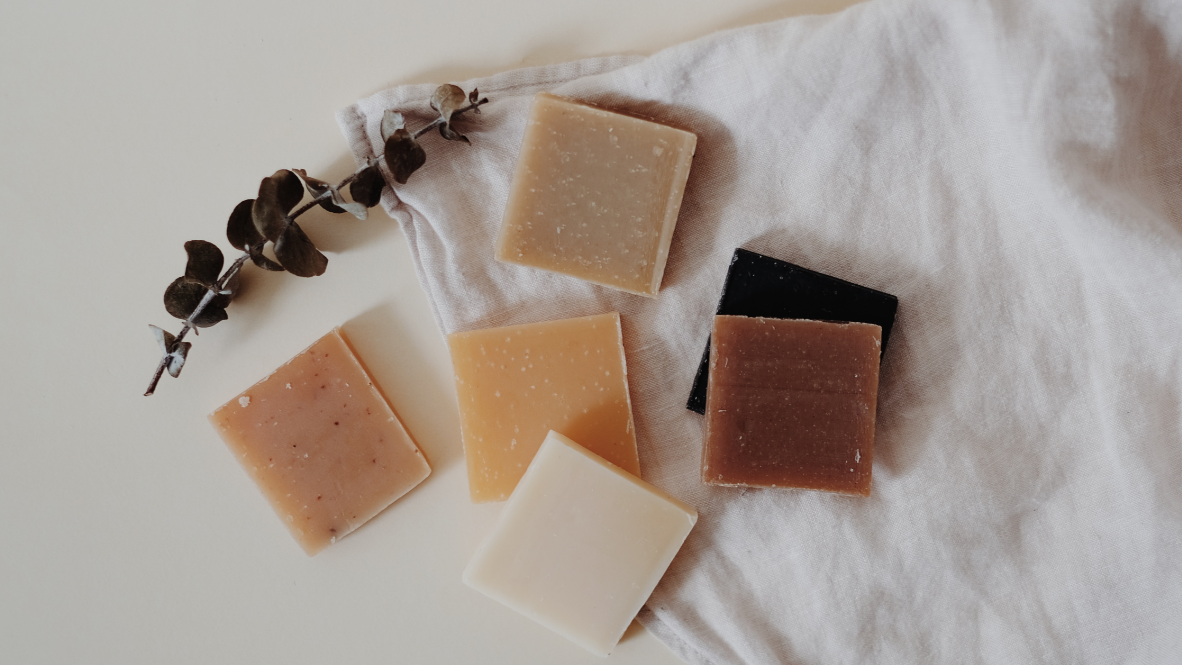How to start an organic / homemade Soap manufacturing business in India 2023?
The total Indian bath soap market size reached USD 2.8B in 2022. Going forward, it is expected to reach USD 4.1B by 2028, exhibiting a growth rate (CAGR) of 6.2% during 2023-2028. Although as of today, there is a very small percentage who are using the organic soap but this segment is predicted to hold a considerable market share in the India soap industry in coming future. So lets see how to start an organic / homemade Soap manufacturing business in India.
What is an Organic or Handmade soap? Difference between normal soap and organic soap?
An organic or handmade soap is a type of soap that is made using natural and often organic ingredients by minimizing the use of synthetic additives, chemicals and artificial fragrances. These soaps are typically produced through traditional methods that involve carefully selecting ingredients and using techniques that retain the beneficial properties of those ingredients. Normal soaps use too many additives, chemicals that may be harmful to your skin and also have some negative on the environment.
In other words, organic soap is the soap equivalent of a gourmet salad made with farm-fresh veggies – no synthetic stuff allowed! It’s like your skin’s personal vacation to a tropical island where coconut oil and shea butter are the friendly cabana boys. Normal soaps are like the soap rebels who have had one too many chemical cocktails. 🙂
Benefits of Organic soap over normal soap
(1) Use of natural Ingredients and no harsh chemicals: Organic and handmade soaps are crafted using natural ingredients such as plant-based oils (like coconut oil, olive oil, or shea butter), essential oils, herbs, spices, and natural colorants. Unlike normal soaps, handmade soaps avoid using harsh chemicals, synthetic fragrances and artificial colors. This can be particularly beneficial for people who have sensitive skin.
(2)Traditional Production Methods: Traditional methods like cold process or hot process soapmaking are used to produce organic soap. These methods retain the natural glycerin in the soap, which is moisturizing for the skin. Commercially produced soaps often remove glycerin and replace it with synthetic moisturizers
(3) Environmentally Friendly: Organic soaps often prioritize using sustainable and eco-friendly ingredients. This can include using ingredients that are ethically sourced and produced without harming the environment.

Pros and Cons of starting Organic / handmade soap manufacturing business
Pros of starting Organic / handmade soap manufacturing business
(1) Growing Demand for organic products:
As consumers become more conscious of their health and the environment, there’s a growing demand for natural and organic products. We can already see this demand in food products and this would replicate in Soap business as well. Organic soaps align with this trend and can attract a niche market seeking healthier alternatives to traditional soap products.
(2) Contribution of environment:
Producing organic soaps typically involves using sustainable and environmentally friendly ingredients and production methods. This resonates with consumers who prioritize products that have a lower impact on the environment and on the other side, you would contribute to the environment indirectly.
(3) Small-Scale Production is possible:
Organic soap manufacturing can often be done on a smaller scale, making it suitable for home-based businesses or people who are starting out. This also allows you to maintain quality control and a personal touch in your products.
(4) High potential for online sales:
The rise of e-commerce platforms and social media has made it easier for small businesses to reach a wider audience by selling your products on amazon, flipkart, etc. You can sell your organic soaps online and showcase your products through visually appealing content.
Cons of starting Organic / handmade soap manufacturing business
Certainly, starting an organic / handmade soap manufacturing business comes with its share of challenges and potential drawbacks. Here are some cons to consider:
(1) Regulations and Compliance:
The cosmetic and soap industry is subject to regulations and standards that vary by region. Ensuring compliance with labeling, ingredient listing, and safety requirements can be complex and time-consuming. Although, there is no separate legislation relating to the manufacturing of hand made soaps, but “The Drugs and Cosmetics Act 1940 and Rules 1945” in India regulate all the manufacturing process relating cosmetics and drugs and under which manufacturing of hand made soap is covered.
(2) Competition:
The market for organic soaps can be competitive, with established brands and artisanal soapmakers already vying for consumer attention. Differentiating your products and building brand recognition can be challenging. You need to find something unique about your product and market based on that.
(3) Initial Investment:
Setting up a soap manufacturing business requires investment in equipment, ingredients, packaging materials and also some space. The initial costs can be significant and may take time to recover. We will talk about the investment required in the next point.
(4) Shelf Life and Preservatives:
Organic soaps, particularly those with natural ingredients, may have a shorter shelf life compared to normal soaps that contain synthetic preservatives. Ensuring that your products have a reasonable shelf life while remaining free of synthetic additives can be a balancing act. Due to this, there could be high inventory loss if you are not able to sell your stock before shelf life.

Investment required, working capital & profit margin
Investment required for starting organic / handmade soap manufacturing business
You may need around INR 378,000 to 1,575,000 to start with this business. Please remember that these are estimated figures and it can vary depending on your requirement and skills. You can also start this business with only INR 200,000 if you are smart.
| Expense Category | Estimated Cost Range (INR) |
|---|---|
| Equipment and Supplies | ₹75,000 – ₹375,000 |
| Production Space | Depends (500-1000 sq ft.) |
| Legal and Regulatory | ₹37,500 – ₹150,000 |
| Marketing and Branding | ₹75,000 – ₹225,000 |
| Labor Costs | Depends |
| Initial Inventory | ₹37,500 – ₹150,000 |
| Utilities and Operating | ₹15,000 – ₹37,500/month |
| Testing and Certification | ₹37,500 – ₹150,000 |
| Distribution and Shipping | Varies |
| Insurance | ₹37,500 – ₹75,000/year |
| Miscellaneous Costs | ₹37,500 – ₹75,000 |
| Total Estimated Investment | ₹378,000 – ₹1,575,000 |
Working capital required
You may need a working capital of around INR 200,000 before starting this business in order to cover your inventory, debtors, etc.
Product economics (cost breakup of 1 sample product)
The profit margin is quite good in this business and it is likely to yield to you around 20%.
| Item A | Amount INR | % |
| Selling price | 100 | |
| Cost for making it (COGS) | 60 | 60% |
| Gross profit | 40 | 40% |
| Other expenses | 20 | 20% |
| Net profit | 20 | 20% |
Steps to start an organic / handmade soap manufacturing business
1. Research and Planning:
The first step for this business is to do a thorough research about this market, product quality, target audience, competition, etc. Thereafter, define your business goals, mission, values and create a detailed business plan that outlines your business model, products, pricing, and marketing strategy.
2. Decide the place of business:
Secondly, you need to find a place where you can start with this business. Initially, you may need a space of around 500 to 1000 sq ft. Or may be you can also start from your home if you have enough space.
3. Obtain required licenses:
Next, you need to register your business and obtain any necessary licenses or permits as below
- Manufacturing license from respective State Drug authority (under Drugs and Cosmetics Act 1940 and Rules 1945)
- Udyam registration http://udyamregistration.gov.in/
- GST (Goods and Service Tax) registration https://reg.gst.gov.in/registration/
- Company registration like private limited company, partnership or proprietorship firm. I would recommend starting with a proprietorship firm first, then when your business grows you may get into a private limited company.
- PAN card (if it’s a private limited company or partnership, not required if you are starting as a proprietor).
Also open a separate current bank account if it’s a private limited company or partnership, not required if you are starting as a proprietor
You can obtain these licenses directly if you have required knowledge. However, I would recommend taking help from a CA or lawyer.
4. Product Development, Branding and Packaging:
Next is to work on your product. Experiment with soap-making techniques and ingredients to develop your organic soap recipes. Test your products on various skin types to ensure quality and safety. You also need to consider factors like fragrance, colors, textures and skin benefits.
Develop a brand identity, including a logo, color scheme, and brand name. Brand name should be catchy & simple. Then you should also create your logo and tagline. You can easily create a logo for free using various websites for example, www.canva.com. Your packaging should be aesthetic to appeal the customers.
5. Sourcing Ingredients and Supplies:
Identify suppliers of high-quality organic oils, essential oils, herbs, and other ingredients. Source packaging materials such as boxes, labels, and wrappers.
6. Setting Up Production:
Acquire soap-making equipment, molds, cutters, and other necessary tools. Typical list of soap making machinery required for soap manufacturing are plodder machine, miller machine, sap stamping machine and soap cutting machine. Based on the type of product to be manufactured and the scale, the type and investment required in machinery would vary.
Follow your soap recipes and production methods consistently and also implement quality control measures to ensure every batch meets your standards.
7. Sales, Marketing and Promotion
Determine your sales channels, such as online platforms, local markets, and retail partnerships. You may also set up an online store or list your products on e-commerce platforms.
Secondly, create a professional website showcasing your products and brand story. Utilize social media platforms to share visually appealing content and engage with potential customers. You may consider collaborating with influencers or bloggers in the organic and natural beauty niche.
Provide excellent customer service through prompt communication and addressing customer inquiries or concerns.
8. Distribution and Shipping:
Develop a shipping and fulfillment strategy to ensure timely delivery to customers. Consider offering multiple shipping options and tracking services.

Conclusion
Remember that starting a business requires careful planning, dedication, and adaptability. Take the time to thoroughly research each step, seek advice from experts or mentors, and be prepared to learn as you go. Building a successful organic soap manufacturing business takes time, effort, and a passion for creating high-quality products that customers will love !!!




